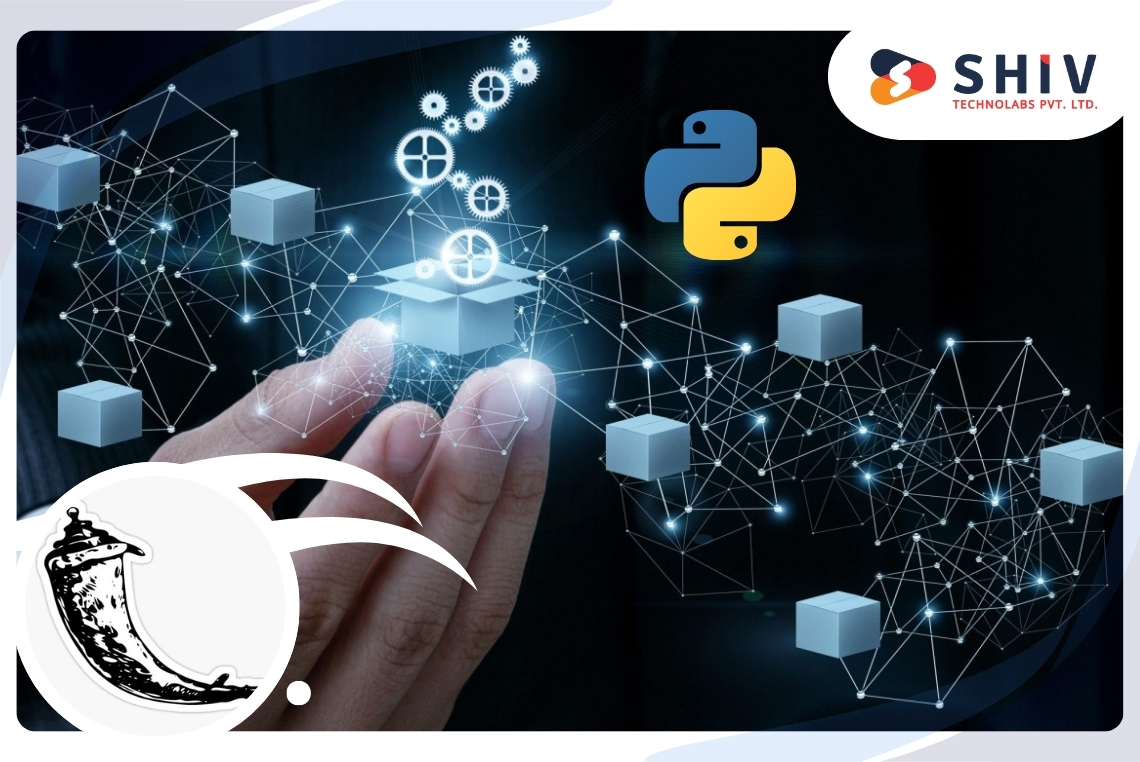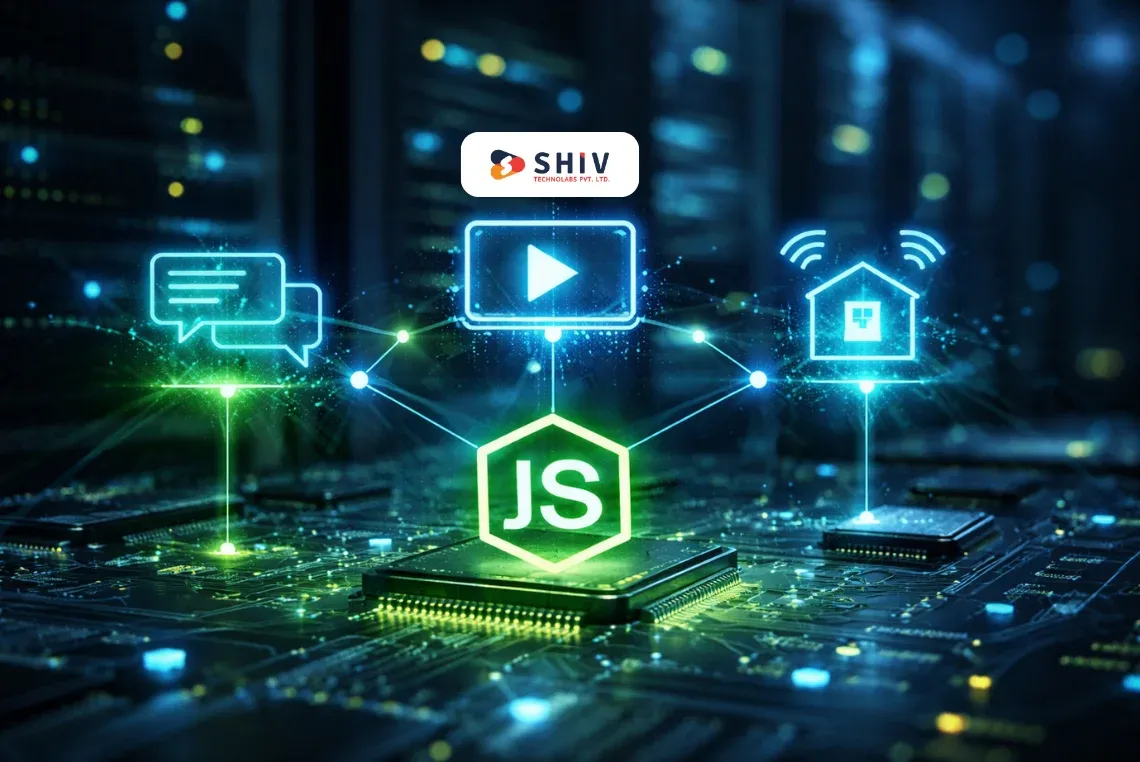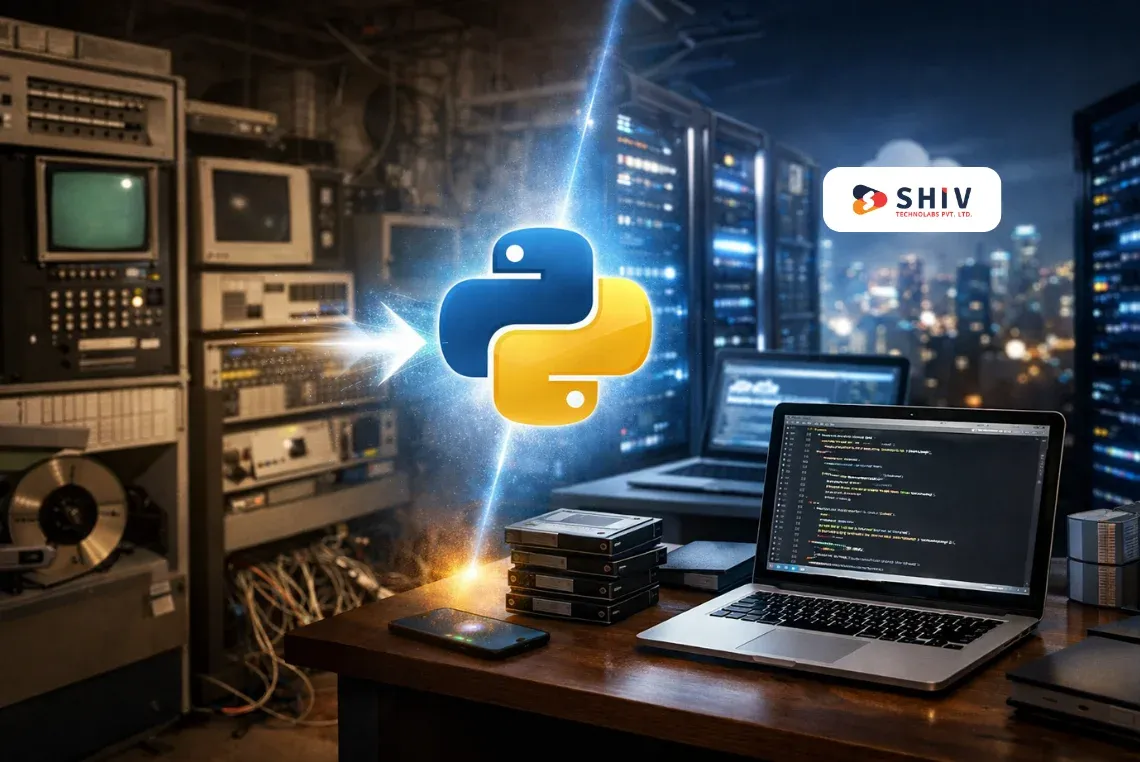Table of Contents
Microservices architecture has revolutionized modern software development by enabling developers to build applications as a collection of loosely coupled services. Python, with its simplicity and versatility, has emerged as a top choice for creating microservices.
Among the many frameworks available, Flask stands out as a preferred option. This blog explores why Flask is considered an excellent Python framework for microservices.
Introduction to Flask and Microservices
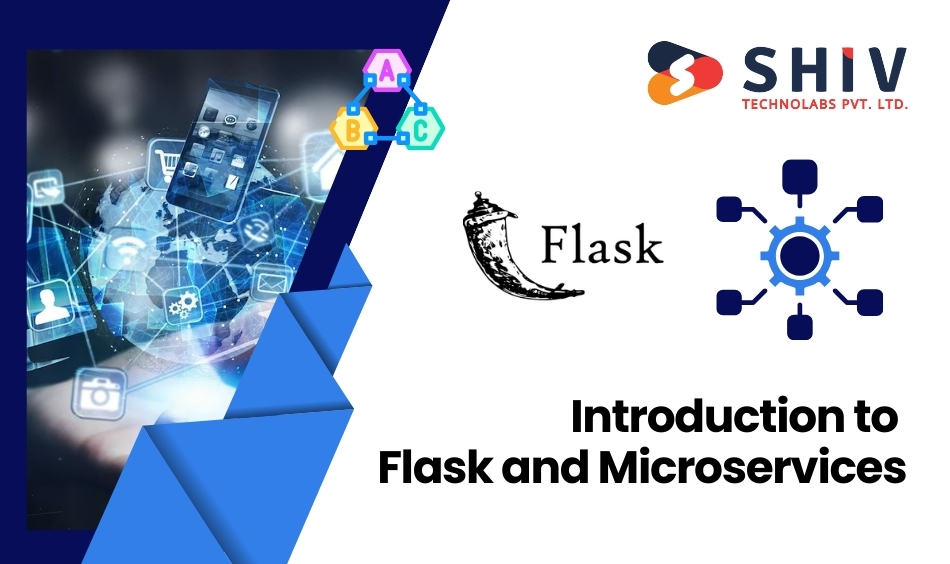
Microservices have become the cornerstone of modern software development, enabling businesses to build applications that are modular, scalable, and easy to maintain.
With Python being one of the most popular programming languages for web development, frameworks like Flask have gained significant traction in the microservices ecosystem. Let’s understand what makes microservices and Flask a perfect match.
# What Are Microservices?
Microservices refer to an architectural style where applications are built as a collection of small, independent services that communicate over APIs.
Each service focuses on a specific functionality, making the application modular and easier to maintain. Companies like Netflix, Uber, and Amazon have adopted microservices to improve scalability, maintainability, and development speed.
A study by MarketsandMarkets indicates that the global microservices market is expected to grow from $2.7 billion in 2020 to $8.1 billion by 2025. Python’s role in this growth is significant due to its developer-friendly syntax and rich ecosystem.
# Why Flask Fits Well with Microservices Architecture
Flask is a lightweight and flexible framework designed for simplicity. Its minimalist nature aligns perfectly with the principles of microservices, where each service requires only the essential tools to function.
Flask doesn’t impose rigid patterns or unnecessary dependencies, allowing developers to build customized solutions tailored to their microservices needs.
Core Features of Flask for Microservices Development
Flask’s popularity as a Python framework for microservices stems from its ability to provide essential tools without unnecessary complexity. It offers developers the flexibility to design tailored solutions while maintaining a lightweight and efficient structure.
Below are some key features that make Flask a go-to choice for building microservices.
# Lightweight and Minimalistic Design
Flask’s small core makes it ideal for microservices. Unlike heavier frameworks, Flask avoids unnecessary overhead, allowing developers to focus solely on their service logic. This simplicity reduces development time and keeps applications lean.
# Extensive Plugin Support
Flask offers a wide range of extensions, such as Flask-RESTful for API development and Flask-SQLAlchemy for database integration. These plugins enhance Flask’s capabilities without making it bloated, making it a versatile choice for microservices.
# Built-In Support for RESTful APIs
REST APIs are the backbone of microservices communication, and Flask excels in this area. Its built-in tools make it straightforward to design and manage RESTful endpoints, reducing the complexity of inter-service communication.
# Asynchronous Processing in Flask
Modern microservices often require asynchronous capabilities to handle high volumes of requests efficiently. Flask’s compatibility with libraries like asyncio enables developers to build non-blocking, asynchronous services.
# Scalable Application Development
Flask’s modular nature makes it easy to scale services independently. Expert Python developers can start with a simple service and scale it as needed by adding more functionalities or integrating additional tools.
Why Flask Stands Out for Microservices in Python?
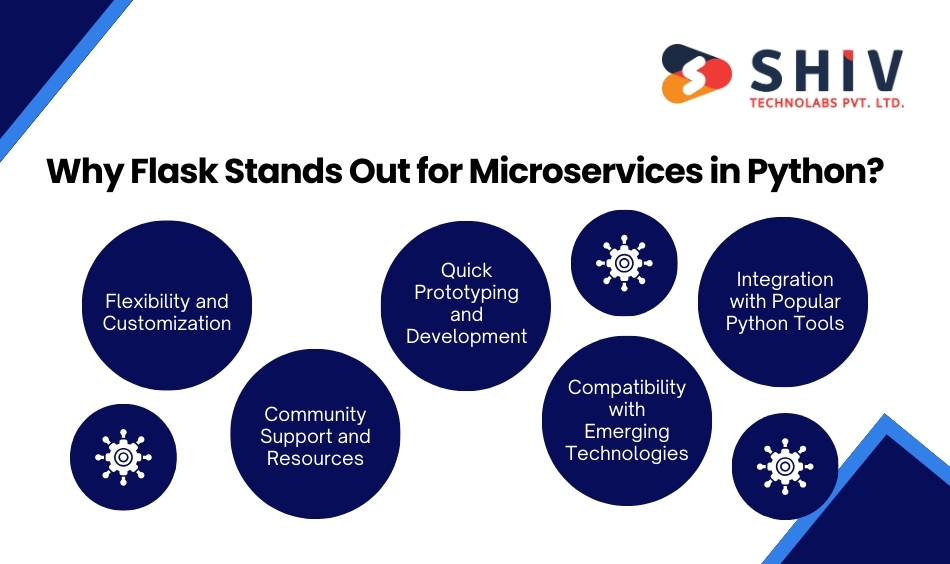
Flask’s simplicity and adaptability make it a standout option for developers working on microservices. Unlike more rigid frameworks, Flask allows for a customized approach, catering to the unique needs of each service. Here’s a closer look at the specific reasons why Flask excels in the world of microservices in Python.
# Flexibility and Customization
Flask offers the freedom to design applications without enforcing a specific structure. This flexibility makes it a preferred Python framework for microservices, as developers can build solutions that meet their exact requirements.
# Quick Prototyping and Development
Flask’s simplicity allows developers to create prototypes quickly. Its intuitive API and minimal setup make it ideal for experimenting with new microservices or testing ideas without investing excessive time.
# Integration with Popular Python Tools
Flask works seamlessly with tools like Celery for task scheduling, Pytest for testing, and Pandas for data manipulation. This compatibility strengthens Flask’s position as a reliable Python microservices framework.
# Community Support and Resources
Flask has a vast and active developer community. From comprehensive documentation to forums and tutorials, Flask users have access to abundant resources to solve problems and learn best practices.
# Compatibility with Emerging Technologies
Flask integrates well with modern tools like Docker and Kubernetes, essential for deploying and managing microservices. Its adaptability to new technologies makes it a future-ready choice.
Flask vs Other Python Frameworks
When developing microservices in Python, choosing the right framework can be challenging given the variety of options available. Flask, Django, FastAPI, Pyramid, and Tornado are some of the most widely used frameworks, each with its unique features and use cases. Understanding how these frameworks compare can help identify why Flask stands out for microservices.
# Flask vs Django
- Overview: Django is a high-level, all-inclusive framework designed for full-stack applications, while Flask is lightweight and modular, focusing on simplicity.
- Advantages of Django: Django provides everything out of the box, including an ORM, authentication, and admin panels, making it suitable for monolithic applications.
- Drawbacks for Microservices: Django’s monolithic nature can result in bloated applications when used for microservices, as it includes many features that might be unnecessary for small, independent services.
- Flask’s Edge: Flask offers more flexibility, allowing developers to pick only the components they need, making it better suited for building modular and lightweight microservices.
# Flask vs FastAPI
- Overview: FastAPI is a newer framework optimized for building APIs with asynchronous support, while Flask focuses on simplicity and a synchronous approach.
- Advantages of FastAPI: It is designed with performance in mind, providing built-in async capabilities, type annotations, and automatic OpenAPI documentation generation.
- Drawbacks of FastAPI: While powerful, FastAPI has a steeper learning curve, and its ecosystem isn’t as mature or extensive as Flask’s.
- Flask’s Edge: Flask remains a go-to option for developers who prefer simplicity and don’t require high levels of concurrency. Its extensive ecosystem and large community support make it a reliable choice.
# Flask vs Pyramid
- Overview: Pyramid is another versatile Python framework that allows developers to scale applications from small to large projects.
- Advantages of Pyramid: It provides great flexibility and is suited for projects that may grow in complexity over time. Pyramid’s configurability can cater to microservices.
- Drawbacks of Pyramid: Its learning curve can be steeper than Flask, and it lacks the simplicity that many developers seek when building microservices.
- Flask’s Edge: Flask’s minimalistic approach makes it easier to get started, particularly for smaller, independent services where simplicity is key.
# Flask vs Tornado
- Overview: Tornado is a Python web framework and asynchronous networking library that excels in handling long-lived network connections and high concurrency.
- Advantages of Tornado: It’s a great choice for applications requiring WebSocket support or real-time functionality.
- Drawbacks of Tornado: Its primary focus on concurrency means it may not be the best choice for general-purpose microservices development.
- Flask’s Edge: Flask is better suited for general microservices development, especially when asynchronous capabilities are not a primary requirement.
# Flask vs Bottle
- Overview: Bottle is a minimalist Python framework, much like Flask, focusing on small applications and APIs.
- Advantages of Bottle: It’s even more lightweight than Flask, with everything contained in a single file, making it a good choice for extremely simple services.
- Drawbacks of Bottle: Its minimal ecosystem and lack of advanced features make it less versatile than Flask for scaling services.
- Flask’s Edge: Flask strikes a balance between minimalism and extensibility, offering more flexibility and integration options than Bottle.
# Why Flask Stands Out Among Python Frameworks
- Simplicity: Flask’s minimalist design makes it accessible for developers of all skill levels.
- Flexibility: Unlike Django’s rigid structure or Tornado’s specialized focus, Flask allows developers to customize solutions freely.
- Ecosystem: Flask boasts a rich ecosystem of extensions, tools, and plugins that streamline development.
- Community Support: Flask’s mature community ensures robust resources, frequent updates, and dependable support.
- Balanced Approach: Flask’s balance between simplicity and scalability positions it as an excellent choice for microservices.
By understanding these comparisons, it becomes clear that while many frameworks offer unique strengths, Flask’s versatility, flexibility, and developer-friendly approach make it one of the most popular Python frameworks for microservices.
Also Read: Ruby vs. Python
Best Practices for Flask Microservices Development
Developing microservices with Flask requires careful planning and adherence to best practices to ensure scalability, maintainability, and performance.
By following proven techniques, developers can create robust and efficient microservices that meet the demands of modern applications. Below are some essential best practices to consider when building Flask microservices.
# Structuring Flask Applications for Microservices
Organize your project into separate modules for better maintainability. Use blueprints to manage routes and APIs, ensuring each microservice is isolated yet cohesive.
# Ensuring Performance and Security in Flask Projects
- Use caching mechanisms to optimize response times.
- Secure APIs with authentication and authorization protocols like OAuth2.
- Monitor performance using tools like Prometheus and Grafana.
Why Trust Shiv Technolabs for Python Development Services?
Shiv Technolabs has established itself as a trusted provider of Python development services in Saudi Arabia, catering to businesses of all sizes and across various industries. With a team of skilled Python developers and years of experience in the field, Shiv Technolabs focuses on delivering tailored solutions that align with our client’s specific requirements.
Our approach is centered on understanding the unique challenges faced by businesses and designing solutions that not only address these challenges but also drive measurable results. Whether it’s building scalable web applications, implementing advanced machine learning algorithms, or creating robust APIs, Shiv Technolabs offers a diverse range of services backed by their commitment to quality and innovation.
# Services Offered by Shiv Technolabs in Python Development:
- Python CMS Development
- Python Web App Development
- Python Mobile App Development
- Data Analytics with Python
- Web Scraping with Python
- Python App Maintenance & Support
Conclusion: Flask as a Python Microservices Framework
Flask’s lightweight design, flexibility, and rich ecosystem make it an ideal Python framework for microservices. Its ability to handle RESTful APIs, integrate with modern tools, and scale easily has cemented its popularity among developers.
As microservices continue to grow in importance, Flask remains a dependable and efficient solution for building scalable, maintainable, and high-performing services. Its community support and adaptability ensure it will remain a go-to choice for microservices in Python for years to come.
If you’re looking to build efficient and scalable web applications, Shiv Technolabs is your trusted partner for the best Python web development solutions. With expertise in frameworks like Flask and a strong commitment to delivering results, we can help transform your vision into functional, high-performing applications tailored to your business needs.
Let Shiv Technolabs guide you in making the most of Flask for your next Python development project.
FAQs
1. What makes Flask a good choice for building microservices in Python?
Flask is a lightweight, minimalist framework that offers flexibility, making it ideal for microservices. Its ability to build RESTful APIs, support asynchronous processing, and integrate with modern tools like Docker and Kubernetes makes it a reliable option for developing scalable microservices in Python.
2. How does Flask compare to Django for microservices development?
Flask is better suited for microservices due to its lightweight and modular design, which aligns with the principles of microservices architecture. Django, while feature-rich, follows a monolithic approach, making it more suitable for large, all-encompassing applications rather than small, independent services.
3. Can Flask handle high-performance and scalable microservices?
Yes, Flask can handle high-performance microservices when combined with appropriate tools and techniques. Using asynchronous libraries, caching mechanisms, and deploying Flask applications with platforms like Docker and Kubernetes ensures scalability and performance.
4. Is Flask suitable for beginners building microservices in Python?
Absolutely. Flask’s simplicity and intuitive API make it an excellent choice for beginners. Its minimal setup and clear documentation allow new developers to create microservices with ease while learning the fundamentals of Python web development.
5. Why is Flask popular among developers for microservices in Python?
Flask is popular because it offers the perfect balance of simplicity and functionality. It doesn’t impose strict structures, allowing developers to create tailored solutions. Additionally, its active community, extensive plugin ecosystem, and adaptability to emerging technologies make it a preferred Python framework for microservices.
6. Why should I choose Shiv Technolabs for Python development services in Saudi Arabia?
Shiv Technolabs has a proven track record of delivering high-quality Python development services, including microservices development using frameworks like Flask. Our experienced team provides customized solutions that align with your business needs, ensuring reliable, scalable, and efficient applications.
7. How does Shiv Technolabs ensure success in Python microservices projects?
At Shiv Technolabs, we focus on understanding your requirements and leveraging the right technologies to deliver top-notch microservices. Our expertise in Python frameworks like Flask, along with modern tools like Docker and Kubernetes, ensures that your project is delivered on time, performs optimally, and scales effectively to meet future demands.

